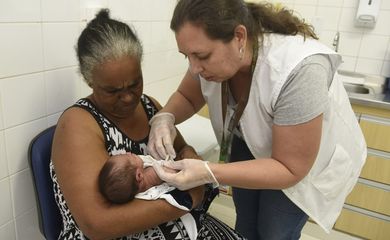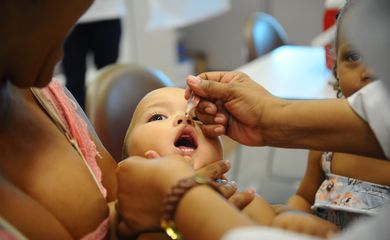Brazil still faces distrust over vaccination

The distrust among a segment of the population regarding immunization, fueled by misinformation campaigns and anti-vaccine movements, remains a challenge for Brazil. According to the Minister of Health, Nísia Trindade, the phenomenon of "vaccine hesitancy" among some Brazilians started to gain traction around 2016.

Combined with budget restrictions in the health area and the former government's unwillingness to encourage immunization of the population, mistrust has caused vaccination coverage in the country to fall in recent years, Minister Trindade stated.
In 2019, Brazil lost its measles elimination certificate, primarily due to a decrease in demand for the vaccine against the disease, as stated by the minister. "This situation was exacerbated during the previous administration, marked by a clear trend of scientific denialism. It's crucial to note that this trend persists," Trindade emphasized during a seminar on vaccination at the National Academy of Medicine in Rio de Janeiro in early December.
Juarez Cunha, the director of the Brazilian Immunization Society (SBIm), notes that since the mid-2000s, there has been a challenge in meeting vaccination targets.
"A fundamental aspect is trust. One of the aspects that we know has been and continues to be shaken is trust in vaccines. It's not just about trusting the product, its efficacy, and its safety. This aspect leaves people with many doubts, so we have to provide very thorough information," explains Cunha.
According to Jarbas Barbosa, the director of the Pan American Health Organization (PAHO), this phenomenon is not unique to Brazil and has intensified during the COVID-19 pandemic. He emphasizes the importance for governments to continually monitor social media and promptly address any vaccination-related rumors.
"We have been urging countries to monitor social media daily and respond promptly to any rumors or misinformation, as these can snowball and undermine confidence in vaccines," Barbosa warned during the Academy of Medicine event.
An aggravating factor, according to Barbosa, is that people are more skeptical of official information, which makes the job of debunking vaccine rumors even more difficult.
Government
Combatting misinformation has been a key focus of the Brazilian government, exemplified by the creation of the Saúde com Ciência (Health with Science) platform in October, aimed at educating the population.
Minister Nísia Trindade has noted that the current government has taken a different stance compared to the previous administration. In February of this year, the federal government launched the National Vaccination Movement.
"At the launch event in Brasília, Brazil’s president [Luiz Inácio Lula da Silva] emphasized the importance of vaccination by personally receiving the vaccine—a stark contrast to the actions of the previous administration," recalled Nísia during the Academy of Medicine event. "When we assumed office, we faced a shortage of the vaccines necessary for immunization, including those on the children's vaccination schedule."
The minister highlighted that initiatives such as replenishing vaccine supplies and launching information campaigns had contributed to an improvement in vaccination coverage across the country.





